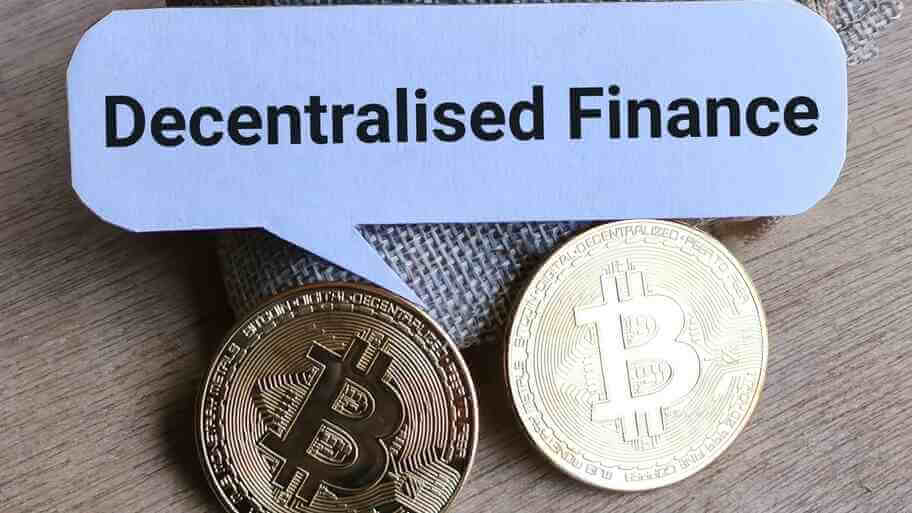The term “DeFi” was coined in 2018 when a group of developers brainstormed the possibility of creating an inclusive yet automated system that would make financial transactions easier. This came on the heels of the success of blockchain anchoring, the underlying technology that powers the Bitcoin cryptocurrency.
The concept of DeFi was fully launched for mainstream use following the creation of the Ethereum blockchain. This has started a trend that has led to the removal of some intermediaries in the financial ecosystem. This older system has been replaced by peer transactions.
The Concept of DeFi and Blockchain Anchoring
Decentralized Finance, DeFi for short, is the umbrella term used to refer to the wide selection of financial products that allow you to lend, borrow, and place your money in crypto assets.
Through DeFi, you will also have access to a plethora of financially inclusive services, which aren’t always easy to obtain in the traditional financial ecosystem.
DeFi works based on blockchain anchoring—the insertion or hashing of blockchain data. The inserted data includes special scripts or unique identifiers that aid in the tracking and immutability of the transactions.
DeFi and Bitcoin: Closely Related, but with Different Traits
Bitcoin (BTC) is the first cryptocurrency to be launched and the leading crypto asset in terms of market capitalization. The coin was launched by an anonymous person or group of persons called Satoshi Nakamoto.
The aim of launching Bitcoin was to create a “store of value” that helps investors or holders of the coin hedge against inflation.
On the other hand, Decentralized Finance (DeFi) was popularized on the Ethereum blockchain, with the Ethereum crypto coin doubling as the primary currency fueling the DeFi economy.
Both the Bitcoin cryptocurrency and the Decentralized Finance (DeFi) instrument have the same goal – to make finances accessible to many. With both of these, you can access financial services without using banks. You also get to enjoy reduced transaction fees, real-time transaction speed, and anonymity.
The primary difference between the two is the working model. While Bitcoin is a cryptocurrency, DeFi is more of a unified financial powerhouse that includes cryptocurrencies.
DeFi and Ethereum
As mentioned earlier, a variety of Decentralized Finance (DeFi) services are built on and delivered via the Ethereum blockchain. The Ethereum blockchain network was founded by Vitalik Buterin, a programmer who sought to make the blockchain anchoring ecosystem more attractive.
Today, a majority of DeFi-related projects and platforms are built on the Ethereum blockchain network. This is partly due to the flexibility of the network which allows for easier development of Decentralized Applications (DApps).
The Ethereum blockchain is also the bedrock of DeFi project development because of the Smart Contract technology. This is a dedicated technology that is compatible with most of the programming languages used on the Ethereum blockchain. With Smart Contracts, blockchain developers can easily automate the execution of transactions provided that the conditions to trigger those transactions are met.
The Relevance of DeFi in Today’s Financial Ecosystem
The gravitation towards cryptocurrencies points to one thing—many people now understand the importance of having an asset class that hedges financial risks.
Decentralized Finance (DeFi) makes this more attractive with the enablement of a wide range of financial instruments. You can consider this the “Wall Street of Blockchain” because most of the activities in traditional trading floors have been replaced with permission-free structures.
Here are some other advantageous features of DeFi:
Transparency
DeFi-related transactions are always public. Anyone can look up the details of a transaction via the blockchain explorer.
Anonymity
While Decentralized Finance (DeFi) transactions are transparent, specific aspects of the transactions are not published. For example, the names of the transacting parties are not published.
Through DeFi, the anonymity that was missing in the traditional financial ecosystem is obtained.
Accessibility
Unlike traditional financial institutions, a bank account is not needed to get into DeFi. All you need is to get a cryptocurrency wallet, create a new account on the wallet, and be sure to remember the passphrases.
Flexible Financial Transactions
Transacting under DeFi is always smooth. The flexibility comes in the form of faster transaction speed and the convenience of moving your crypto assets anywhere you go.
The Different Types of Decentralized Finance Applications
The Ethereum blockchain network created an ecosystem for DeFi applications to thrive. From decentralized lending protocols to peer-based crypto trading platforms, the applications of DeFi are many.
Here are some of the popular types of Decentralized Finance (DeFi) applications:
Yield Farming
This is based on the concept of “farming,” or investing in certain cryptocurrency and DeFi projects with the hope of earning higher rewards when “harvesting” projects.
The concept of Yield Farming is based on an open finance forum that encourages the participation of every “Yield Farmer” or early investor in the liquidity pool.
The role of a Yield Farmer is to scan or seek several DeFi-focused crypto tokens that can offer a higher APY at the end of the liquidity pool timeframe.
Cryptocurrency Betting Markets
Some betting platforms in the cryptocurrency ecosystem have been based on the DeFi architecture. The cryptocurrency news predictions platforms are designed for the users to predict the outcome of specific events.
Liquidity Mining
You can also provide liquidity or offer your crypto tokens as a Liquidity Provider (LP). The concept is based on the need to facilitate transactions by having sufficient liquidity to streamline the transactions.
Your reward for contributing to the pools, such as the Bitcoin Cash solo mining pool, is to earn free tokens. These free crypto tokens can either be sold immediately or held for a while for the value to appreciate before selling.
Decentralized Trading Platforms
Blockchain and cryptocurrency transactions were originally meant to be peer-based, but the proliferation of centralized trading platforms seemed to stall that for a while.
Decentralized Finance (DeFi) is now re-powering the system, especially with the debut of several Decentralized Exchanges (DEXs). These are peer-based cryptocurrency trading platforms.
On a DEX like SushiSwap, PancakeSwap, or Binance Smart Chain, it is easier to trade independently.
How to Claim Ethereum Fog
Ethereum Fog is another important project that could make DeFi more impressive. Although the details are a little vague, the available information suggests that Ethereum Fog could provide an advanced decentralized computational technology that is based on the Fog Technology.
The concept is designed to facilitate the decentralized redistribution of data. The data would be kept in local devices and computers instead of routing through a centralized database.
Some early participants were able to learn how to claim Ethereum Fog. The claims were made for the distribution of the native token for the project. The token, called ETF, was airdropped via the Binance cryptocurrency exchange.
Downsides of DeFi: The Risks Worth Noting
Decentralized Finance (DeFi) has been touted in some quarters to be the “Future of Finance.” Yet, it is important to understand some of the challenges present in a DeFi ecosystem.
These risks include:
-
-
-
- That most DeFi crypto tokens are volatile, increasing the risks of losing some of your investments.
- The Ethereum blockchain, which is the basis of most DeFi projects, has been criticized for its high transaction fees. Thus, you could spend more money to trade DeFi assets.
-
-
Blockchain Anchoring and Decentralized Finance: The Future Outlook
Downsides aside, the future looks bullish for Decentralized Finance (DeFi). The craze is driven by many factors, including the long-term potential of the various DeFi projects, the interests of institutional investors who are already adding some DeFi financial instruments to their balance sheets, and the financial inclusiveness that comes with it.
Decentralized Finance (DeFi) is an open-source financial revolution that uses the layered stack structure as an advantage, ensuring financial inclusion across different industries of the global economy.
Featured Image: Twenty20








